Inspirees Family System Therapy Program | Creative Arts Therapy Perspective
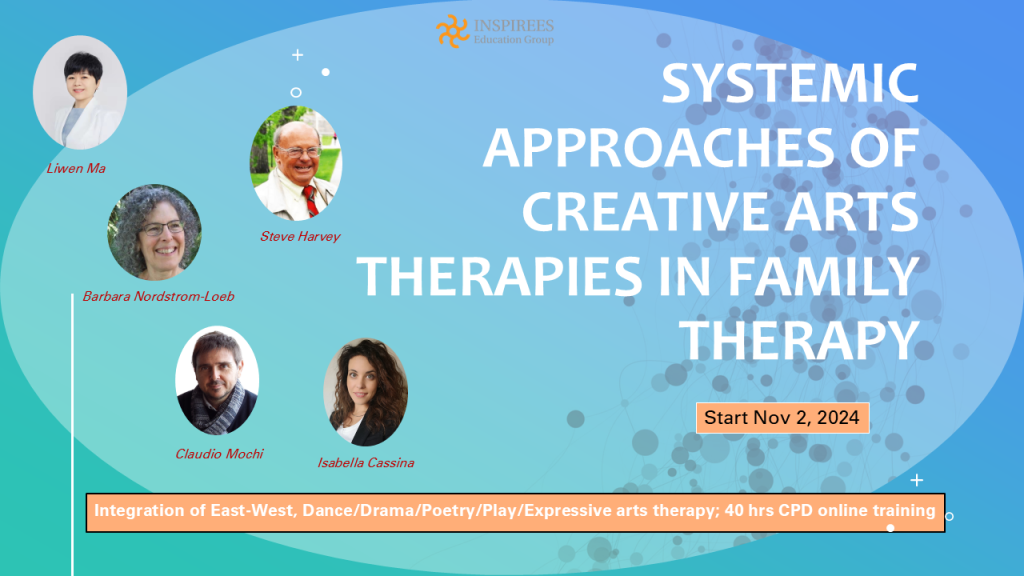
Inspirees Family System Therapy Program | Creative Arts Therapy Perspective
2024-2025, 40 hours in total of integrated theoretical & experiential online training!
Family therapy is a form of psychotherapy that was introduced by psychiatrist Murray Bowen in the 1950s. He believed that the family was an emotional unit and that changes in one person would lead to changes in the whole group. There are many family therapies available, and since this form of therapy addresses communication issues, family members can learn how to better share their thoughts and needs and resolve conflicts in a way that is less likely to damage the relationship. This type of therapy also looks at how to address the difficulties of individual family members. For example, if a family member suffers from a mental illness, family therapy can be used as a means of addressing the issue and also helping to change some of the conditions that sometimes contribute to the problem. When an individual is affected by a mental illness, family members may sometimes lack awareness of how to help. Family therapy can help family members become more aware of what they can do to support a family member with a mental disorder while maintaining their own mental health.
Family system therapy is a systemic approach to understanding a client’s problems and symptoms and seeking solutions from systemic resources. The system perspective is a frame of reference in which the family therapist sees the correlation between the problems for which the client seeks help and the system in which they are embedded: from the inner world to the family interactions to the cultural and social mores. This leads to improvements in family relationships and behavioral patterns throughout the family unit and among individual members and groups within the family. It can help people face:
- Behavioral problems in children or adolescents
- Changes within the family
- Communication problems
- Death of loved one
- Divorce, separation or marital problems
- Parent-child conflict
- Problems between siblings
- Parenting issues
- Stressful events or major life transitions
- Trauma
This family system therapy series will invite five renowned Chinese and international teachers, through different methods such as Dance/Movement Therapy, Expressive Art Therapy, Play Therapy, Drama Therapy and Physical Story Telling, participants will learn to establish a systemic therapy mindset with creativity, artistry and embodiment as the main perspectives, and to enhance the ability to assess the correlation between the individual and the system and to analyze the results from a systemic viewpoint, thus mobilizing systemic resources to solve the problem. The program is designed for participants to learn to establish creative, artistic and embodied thinking.
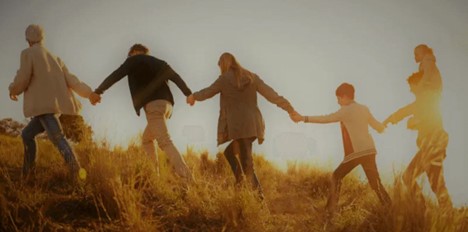
Course 1: THE DANCES OF RELATIONSHIP –DANCE/MOVEMENT THERAPY WITH COUPLES/PARTNERS THERAPY
- Time: 8:30am-11:30am Beijing Time, November 2/3/9/10/16/17, 2024
- 18 hours in total, taught in English with Chinese translation
Instructor: Barbara Nordstrom-Loeb
 Master of Arts in Marriage and Family Therapy, MFA in Dance, Somatic Experiencing Practitioner, Licensed Marriage and Family Therapist, Board Certified Dance Movement Therapist, PWAssoc. – Mindell ProcessWork Associate, Certified Laban/Bartenieff Movement Analyst. Barbara brings her experience and training as a dance choreographer, performer, Laban Movement Analyst, Somatics/ Body Therapist, Psychotherapist and movement educator to guide students in their learning. For nearly 30 years, she has practiced dance/movement therapy, marriage and family therapy, and creative arts therapy in hospitals, private practice, and prisons across the United States. Barbara continues to deepen her awareness and understanding of other ethic and cultural traditions. This includes ongoing experiences in the cultural, artistic and spiritual expressions of different ethnic groups, including African, African American, Asian, Hispanic, Middle Eastern and Native American.
Master of Arts in Marriage and Family Therapy, MFA in Dance, Somatic Experiencing Practitioner, Licensed Marriage and Family Therapist, Board Certified Dance Movement Therapist, PWAssoc. – Mindell ProcessWork Associate, Certified Laban/Bartenieff Movement Analyst. Barbara brings her experience and training as a dance choreographer, performer, Laban Movement Analyst, Somatics/ Body Therapist, Psychotherapist and movement educator to guide students in their learning. For nearly 30 years, she has practiced dance/movement therapy, marriage and family therapy, and creative arts therapy in hospitals, private practice, and prisons across the United States. Barbara continues to deepen her awareness and understanding of other ethic and cultural traditions. This includes ongoing experiences in the cultural, artistic and spiritual expressions of different ethnic groups, including African, African American, Asian, Hispanic, Middle Eastern and Native American.
Marital relationship harmony is one of the essential foundations of social and community stability (to paraphrase Confucius). But in our rapidly changing world, married couples and partners often struggle to balance old and new expectations for how to work together to create harmonious relationships. This class will briefly introduce embodied (dance, movement and body awareness) techniques for improving partner relationships in our changing world. Specific topics will include techniques for deepening interpersonal empathy and increase emotional awareness. It will also briefly introduce techniques for improving communication and working with disagreements and conflicts. Each class session will include didactic lectures, experiential exercises, group discussion and application examples as appropriate. The theoretical foundation of class topics will be based on Dance/Movement Therapy Theories, Laban/Bartenieff Movement System Frameworks as well as Attachment Theory and Neurological/Somatic Trauma/Survival.
Course 2: Family Art Therapy Course Syllabus
- Time: 9:00-11:00am Beijing Time, December 14/21, 2024
- 4 hours in total, taught in Chinese
Instructor: Dr. Liwen Ma
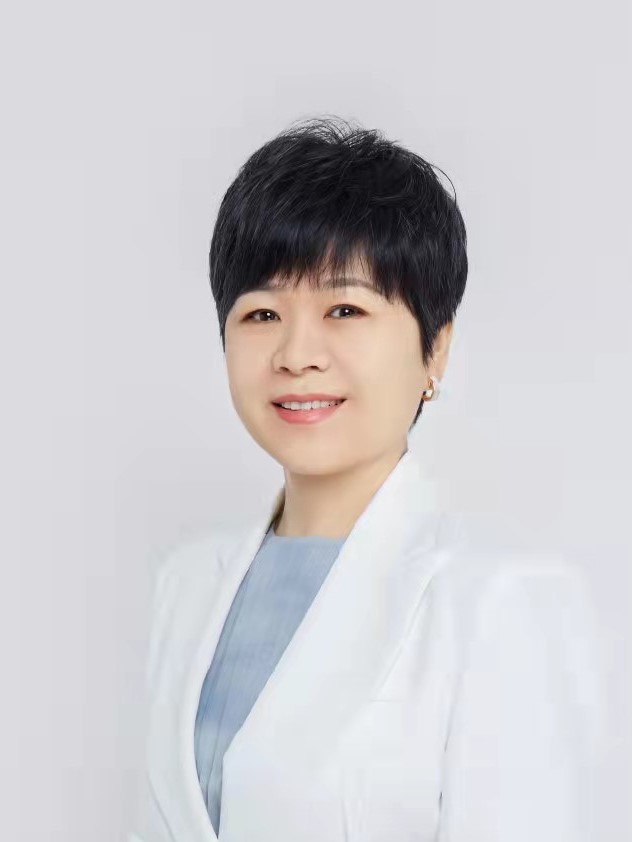 Dr. Ma works at the Institute of Educational Psychology and School Counseling, Department of Education, Beijing Normal University. Founder and Director of the Research Center for Applied Drama and Expressive Arts Education, Department of Education, Beijing Normal University; Founder and Head of the Laboratory of Creative and Integrative Drama-based Education and Therapy. Visiting Scholar, University of Warwick, UK. Founder of Integrated Educational Theater. Member of the international editorial board of the international academic journal Creative Arts Education and Therapy; Associate Editor of Beijing International Review of Education. Deputy head of the Drama Therapy Subgroup of the Art Therapy Group of the Clinical and Counseling Psychology Committee of the Chinese Psychological Association. Member of the Council for the International Association of Creative Arts in Education and Therapy (IACAET).
Dr. Ma works at the Institute of Educational Psychology and School Counseling, Department of Education, Beijing Normal University. Founder and Director of the Research Center for Applied Drama and Expressive Arts Education, Department of Education, Beijing Normal University; Founder and Head of the Laboratory of Creative and Integrative Drama-based Education and Therapy. Visiting Scholar, University of Warwick, UK. Founder of Integrated Educational Theater. Member of the international editorial board of the international academic journal Creative Arts Education and Therapy; Associate Editor of Beijing International Review of Education. Deputy head of the Drama Therapy Subgroup of the Art Therapy Group of the Clinical and Counseling Psychology Committee of the Chinese Psychological Association. Member of the Council for the International Association of Creative Arts in Education and Therapy (IACAET).
Many families seek psychological help because their children have various emotional and behavioral problems. Parents expect that their counselors will help their children improve their mood and correct their behavioral problems. However, in fact, children’s emotional and behavioral problems mostly stem from the parenting style in their family of origin. Although parents are adults and already have the role of parents, the psychological trauma they suffered in childhood are deeply suppressed and cannot be recognized and healed. These unhealed traumas will exist in the subconscious mind in the form of various irrational beliefs, and in their expressions of needs and feelings. Conflicting behaviors will be imaged along the way, and they will have a negative impact on their own work, marital life, and especially their children. As a result, the personal and integrated family functions are in a state of imbalance.
Of all the traumas, the most core and fundamental trauma is the fracture of the mother-child attachment and the various insecurities the child experience in the early years. This trauma is also the root cause of the core and fundamental problems in individuals and families. The core value of this course is that there are not courses in family education, only in family healing. To help the family heal, it is necessary to put aside the role of parents. It is important to let the identity of a father and a mother to be put aside for them to start healing and becoming whole persons.
Part of the psychotherapeutic process is to awaken the creative life force energy. Therefore, creativity and therapy overlap. Creativity is often therapeutic. Healing is a creative process, and Expressive Arts Therapy uses a variety of arts to promote growth and recovery in a supportive environment. It is the process of discovering ourselves through any form of art that comes from the depths of emotion. (see Rogers,1993)
Therefore, this course will be based on attachment theory and expressive art therapy theory. It will help parents find their subconscious attachment trauma by learning expressive art therapy methods that address the explicit behavioral dilemmas in the family. In this process, it helps learners to see and understand these traumas, learn how to reconcile with the divided and conflicting self, achieve reintegration, and adjust the relationships between husband and wife as well as parent and child.
Course 3: Using Creative Art Therapy within Families
- Time: 9:00am-12:00pm Beijing Time, January 18/25 & March 1, 2025
- 9 hours in total, taught in English with Chinese translation
Instructor: Dr. Steve Harvey, PhD-DC-DMT, RDT
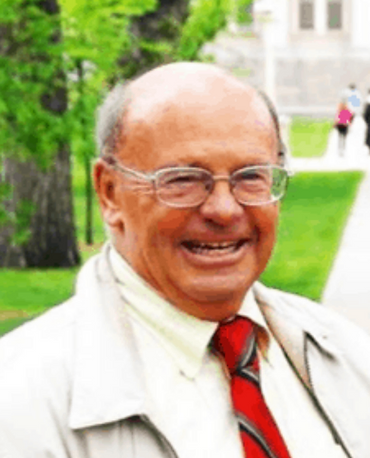
Steve is a creative arts therapist currently teaching at the University of Guam. He has worked as a counselor at a child and adolescent mental health service center in New Plymouth, New Zealand, and as a child clinical psychologist in a private practice in Colorado, USA. Prior to entering mental health as a career field, Steve was active in improvisational theater/dance performance and contact improvisation. He founded and developed Physical Story Telling with his wife Connor Kelly. In addition to being a licensed clinical and educational psychologist, he is a registered member of the American Association for Dance and Play Therapy (North American Association for Drama Therapy) and a professional member of the Dance Therapy Association of Australasia, where he actively contributes to the integration of different disciplines of artistic expression, and helped pioneer the field of family play therapy, which has been published in the mainstream play therapy literature and in the publications of American Psychology and the American Psychiatric Association. Psychology and American Psychiatric Association publications and has published numerous chapters on the topic. Steve has been leading family play therapy workshops in various countries for the past 30 years.
This course will introduce multi-modal observational and intervention strategies that engage family members using movement, art, drama, and storytelling interventions that address communication and arts-based family ritual. These approaches are especially useful in addressing family attachment and families that are dealing with traumatic experiences particularly with younger children. The course will introduce techniques as well as facilitate theory development, treatment planning, supervision, and coaching with the use of this material to the case material introduced by the participants.
Often when families experience difficulties, their interactions contribute to ongoing conflict and marginalization. Communications can lead to unspoken rules that govern communication, contribute to a negative emotional climate, and decrease the flexibility for the emergence of trust and problem finding/solving. The course material of this program will introduce how the Creative Arts and Play Therapies approach identifying and changing this situation.
Course 4: Strengthening the Psychosocial Wellbeing of Families Intervening Beyond the Therapy Room: A Focus on Vulnerable and Traumatic Contexts
- Time: 3:00-6:00pm Beijing Time, March 2/8/9, 2025
- 9 hours in total, taught in English with Chinese translation
Instructors
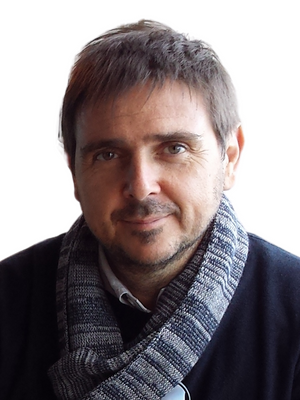 Claudio Mochi is the Director of the University Master’s Program in Play Therapy of the International Academy for Play Therapy (INA) and the European University of Rome (UER), Founder and President of the Association for Play Therapy Italy (APTI). He is a Psychologist and Psychotherapist, a Registered Play Therapist Supervisor™, Expert in Emergency Interventions and Disaster Mental Health with over 20 years of international field experience. Claudio has presented on Play Therapy and Trauma in 6 Continents totaling over 20 Countries and many more cities. He has authored books, chapters and numerous articles.
Claudio Mochi is the Director of the University Master’s Program in Play Therapy of the International Academy for Play Therapy (INA) and the European University of Rome (UER), Founder and President of the Association for Play Therapy Italy (APTI). He is a Psychologist and Psychotherapist, a Registered Play Therapist Supervisor™, Expert in Emergency Interventions and Disaster Mental Health with over 20 years of international field experience. Claudio has presented on Play Therapy and Trauma in 6 Continents totaling over 20 Countries and many more cities. He has authored books, chapters and numerous articles.
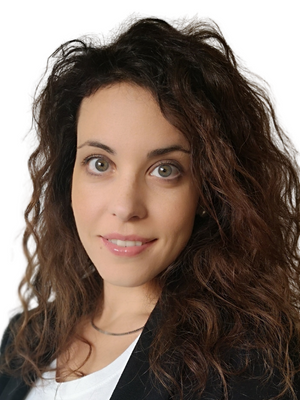 Isabella Cassina is the Director of Project Management at the International Academy for Play Therapy (INA) based in Switzerland, University Lecturer, Editor of APTI’s Play Therapy magazine and Founding Member of the International Consortium of Play Therapy Associations (IC-PTA). She is a Social Worker and registered Therapeutic Play Specialist. She holds a Certificate of Advanced Graduate Studies in Expressive Arts Therapy, a field in which she is also pursuing doctoral studies. Isabella is an Author and Expert in International Cooperation and Project Development with over 12 years of worldwide field experience in contexts of crisis and high vulnerability.
Isabella Cassina is the Director of Project Management at the International Academy for Play Therapy (INA) based in Switzerland, University Lecturer, Editor of APTI’s Play Therapy magazine and Founding Member of the International Consortium of Play Therapy Associations (IC-PTA). She is a Social Worker and registered Therapeutic Play Specialist. She holds a Certificate of Advanced Graduate Studies in Expressive Arts Therapy, a field in which she is also pursuing doctoral studies. Isabella is an Author and Expert in International Cooperation and Project Development with over 12 years of worldwide field experience in contexts of crisis and high vulnerability.
To nurture the psychosocial wellbeing of children and families, professionals must intervene both inside and outside the therapy room in a perspective of strengthening their support system. This is especially important in vulnerable and potentially traumatic contexts. However, where to start and how to proceed constructively and effectively is complex and requires a balance of awareness and expertise.
The workshop will present key principles and guidelines for developing psychosocial interventions involving children, caregivers and professionals in a variety of settings and structures (post-disaster, hospital, refugee reception). Each meeting will provide an overview of one of the three phases that characterize interventions with vulnerable communities: involvement, empowerment, and treatment (Mochi and Cassina, 2024).
Concrete examples of projects developed by trainers in collaboration with local partners and ready-to use play and creative activities will be shared. Special emphasis will be placed on the “Developing Play Together”© project implemented in the school setting, which is one of the main references for families and a key component of their support system. By the end of the workshop, participants will have acquired a set of core information and clear reference points that will enable them to make the most of their professional skills and abilities with a view to expanding and optimizing their psychosocial interventions for vulnerable children and families.
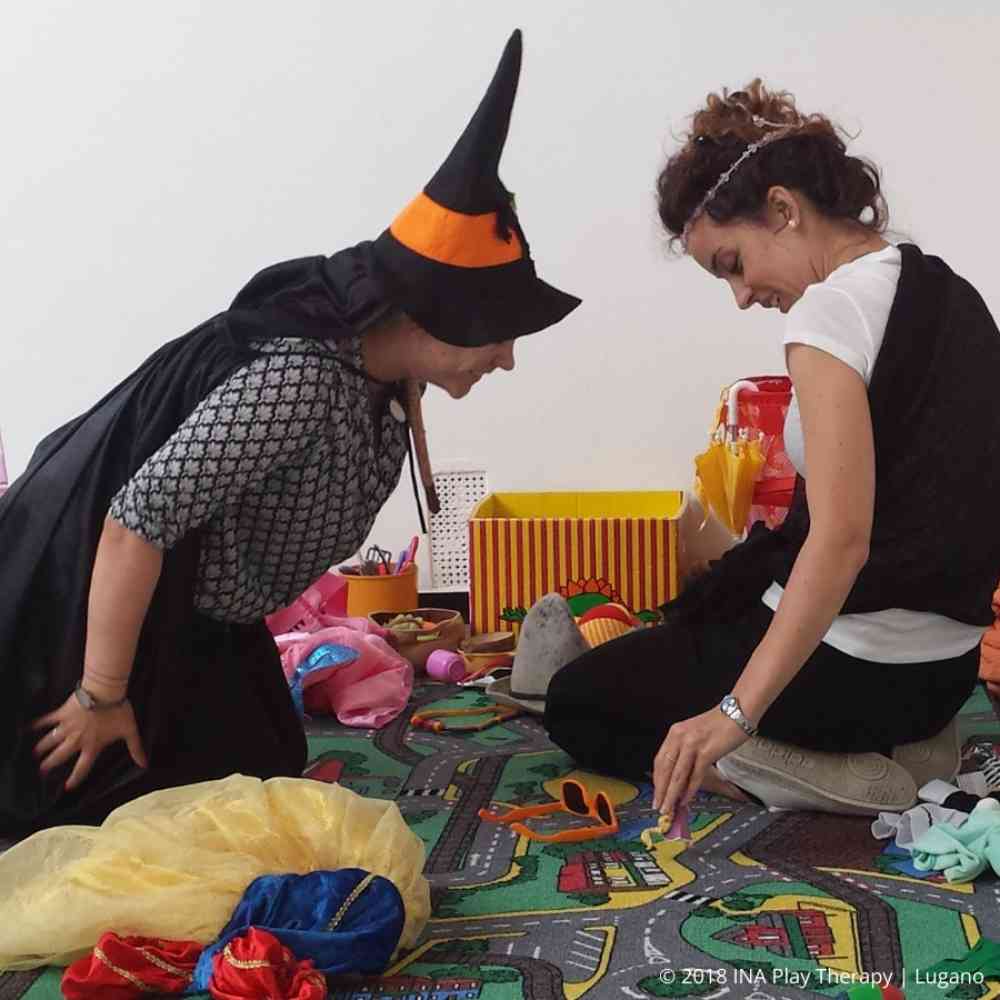
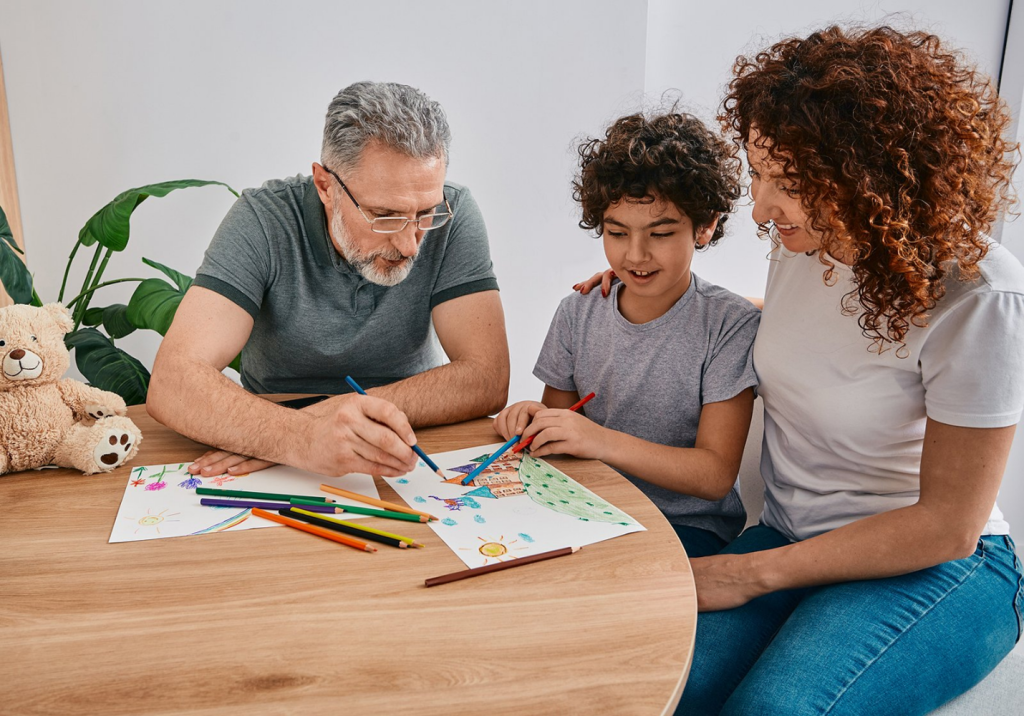
Registration Information
- Location: Zoom, taught in English and Chinese with Chinese translation
- Requirements for online participation: a space where you can work alone without outside interference; a space of a size suitable for simple dancing.
- Number of Participants: Classes start with 10 or more participants and are filled with 30 participants.
- Fee: Standard tuition for the entire series is 1,700USD per person, 1,200USD per person for groups of 2 or more, Chinese National Day special discount to 1,050USD per person for enrollment before October 12, 2024, and 510USD per person for the first course, 110USD per person for the second course, 260USD per person for the third course, and 260USD per person for the fourth course for enrollment in the series of courses individually before October 12, 2024.
*Places for this series are limited and participation is confirmed on a first-come, first-served basis. No refunds will be given for withdrawal for personal reasons after enrollment, but places can be transferred to other participants.
If you are interested in enrolling, please contact us via education@inspirees.com.





